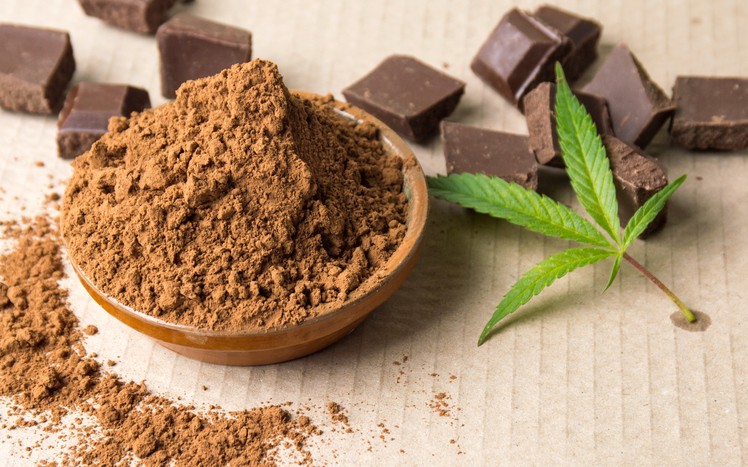Chocolate suppresses THC levels, state researchers claim
Considering the fact that THC is a fat-soluble molecule, this could be the reason why potency counts are dissolving when chocolate is added to the mix
Chocolate reduces THC potency, say researchers. This news will come as a shock to the many consumers who prefer to dose discreetly with cannabis edibles, such as weed-infused chocolate brownies and controlled dose chocolate bars.
Perhaps one of the fastest-growing segments of the legal cannabis market in the U.S. is edibles. By 2022, the cannabis edibles market will soar to $4.1 billion; a prediction made earlier this year in an Arcview market report.
Could this prediction fail to transpire? Based on research unveiled at the recent American Chemical Society Fall 2019 National Meeting & Exposition, quite possibly.
Well, unless scientists and edibles producers can find a way to combine cannabis and chocolate without diminishing the potency of the plant’s psychoactive constituent, tetrahydrocannabinol (THC).
At the recent meeting, researchers reported that specific components contained in chocolate may disrupt the process of testing edibles for potency. With this in mind, regulators are concerned that labels may not accurately represent exactly how much of the mind-altering substance is contained in cannabis edibles.
Chocolate reduces THC potency: Ingredients contained in chocolate dulls cannabinoid activity
A broad spectrum of cannabis users prefer to ingest edibles, such as in the form of chocolates and candies. While this might have seemed like a good idea in the past, new research tells us something quite different.
Cannabis edibles may offer longer-lasting effects than smokable flower, but the signal transduction pathways modulated by THC become suppressed when chocolate is ingested with cannabis.

“A matrix effect” — as the researchers called it — occurs when the amount of chocolate contained in an edible reduces THC’s effects; the more chocolate it contains, the lower the amount of THC.
“When we had less cannabis-infused chocolate in the sample vial, say 1 gram, we got higher THC potencies and more precise values than when we had 2 grams of the same infused chocolate in the vial,” said David Dawson — the project’s lead investigator. Dawson is also a researcher working for CW Analytical Laboratories.
Currently, the culprit ingredient contained in chocolate that reduces THC potency has not been identified. In an attempt to solve the mystery, Dawson and his team have been hard at work investigating the various types of chocolate to determine their influence on THC levels.
Some examples of the chocolate products undergoing testing by researchers include cocoa powder, white chocolate, baking chocolate and chocolate bars.
Considering the fact that THC is a fat-soluble molecule, this could be the reason why potency counts are dissolving when chocolate is added to the mix.
Chocolate reduces THC potency: Regulating cannabis in the U.S. is a tricky task
Although the Food and Drug Administration (FDA) regulates cannabis products, some of them slip under the radar. Currently, the plant is still considered a schedule 1 drug under the Controlled Substances Act.
Everything weed-related, be it cannabis edibles, skin care products or health and wellness supplements, is overseen and regulated by California’s Bureau of Cannabis Control (BCC). Restrictions related to commercially sold products are dealt with by the BCC, which conducts testing as a means of deciding which products make it to the legal market.
Since this fresh bout of research has spotlighted how chocolate reduces THC potency, regulators and researchers are contemplating ways to assist third-party testers in accurately determining just how psychoactive an edible can be when it is mixed with cocoa-based substances.
Currently, edibles producers must adhere to a maximum of of 100 milligrams (mg) THC potency. Products claimed to contain 100 mg THC must be relabeled if they test below 90 mg or above 110 mg. Since chocolate reduces THC potency, many producers could face costly relabeling or destruction of their products moving forwards.








